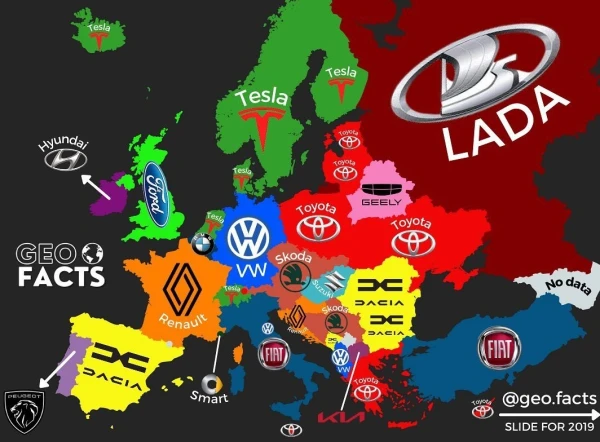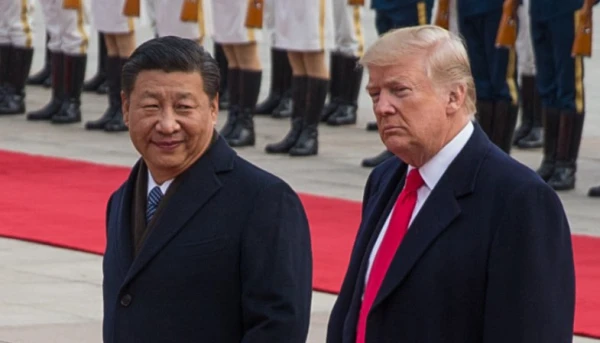
This sector accounts for over 7% of the EU's GDP and provides jobs for more than 13 million people.
European automakers are facing increasing pressure. European Commission President Ursula von der Leyen met with industry leaders to discuss the future of the automotive sector.
The automotive industry in Europe is under pressure due to Trump's tariffs, fierce competition from China, and costly requirements for the adoption of electric vehicles.
This sector, which accounts for over 7% of the EU's GDP and provides jobs for more than 13 million people, is facing growing pressure to remain competitive while bearing the financial burden of transitioning to cleaner mobility.
The EU's next steps in response to these challenges will be crucial in shaping the future of the automotive sector, a key industry for the region.
Car Sales in the EU by the Numbers
According to recently published data from the European Automobile Manufacturers Association (ACEA), new car registrations in the EU fell by 0.7% in the first seven months of 2025 compared to the same period last year.
Car sales in the EU rose by 7.4% in July 2025, with Volkswagen and Renault showing strong growth, while Stellantis reported a decline. Meanwhile, Tesla noted a 40.2% drop in sales.
In the first seven months of 2025, over one million battery electric vehicles were registered in the EU. Plug-in hybrids showed the strongest growth since January 2023, while battery electric vehicles recorded the largest increase since August of last year, according to ACEA data.
Three of the four largest EU markets, accounting for over 60% of battery electric vehicle registrations, showed growth in the first seven months of 2025, led by Germany (+38.4%), Belgium (+17.6%), and the Netherlands (+6.5%).
Registrations of battery electric vehicles, hybrids, and plug-in hybrids increased by 39.1%, 56.9%, and 14.3% respectively, together making up 59.8% of total registrations in the block, compared to 51.1% in July 2024.
Tesla's car sales in Europe fell by 40.2% year-on-year, reducing its market share to 0.7% from 1.3%.
Meanwhile, Chinese BYD more than tripled its sales, reaching 1.2% of the market and surpassing Tesla in the region for the first time.
German brands are among the automakers most affected by protectionist trade policies, feeling pressure from rising tariffs that are already increasing costs across the supply chain. In particular, Volkswagen faces the challenge of reducing excess production capacity and restructuring costs to keep pace with Chinese competitors like BYD.
"We welcome competition because it drives innovation," a Volkswagen representative told Euronews.
"It is also clear that Chinese competitors in Europe must adapt to the specific market requirements and cannot apply technologies from China 1:1," the representative added.
<iframe width="560" height="315" src="https://www.youtube.com/embed/g-vfCNSCXU4?si=dw8WyHueXNgJCK7y" title="YouTube video player" frameborder="0" allow="accelerometer; autoplay; clipboard-write; encrypted-media; gyroscope; picture-in-picture; web-share" referrerpolicy="strict-origin-when-cross-origin" allowfullscreen></iframe>












